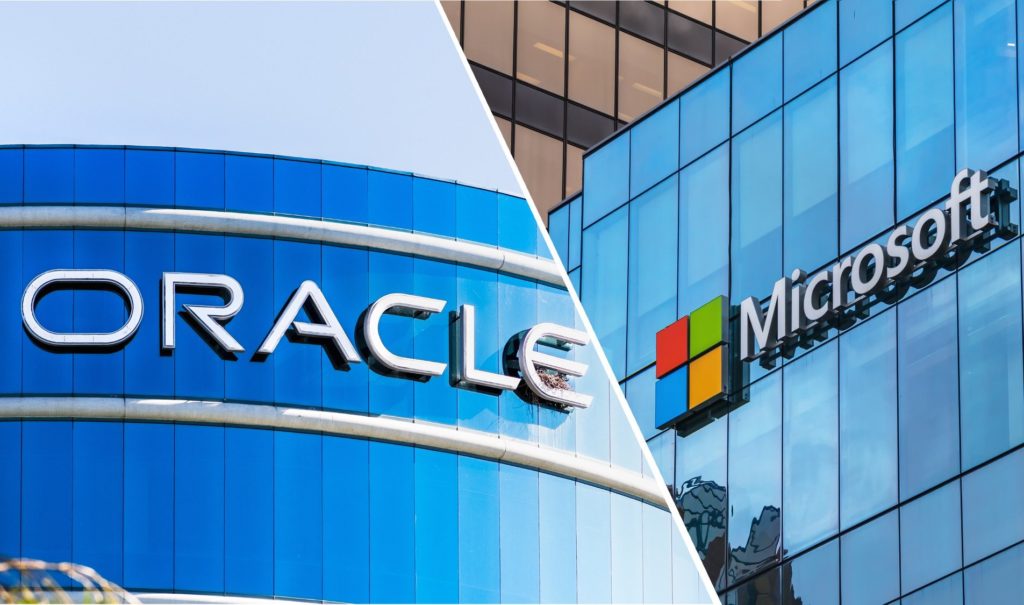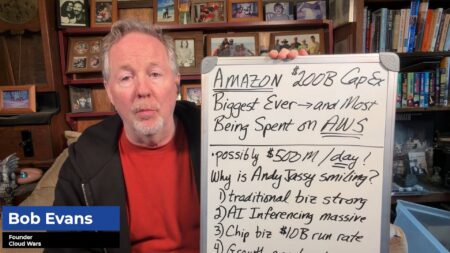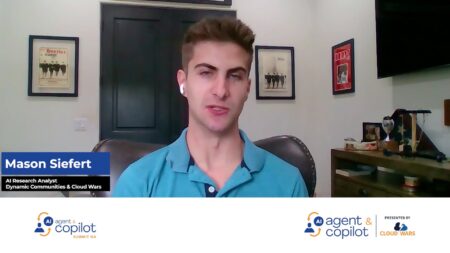
While Microsoft and Oracle compete savagely for customers seeking cloud infrastructure, applications, databases, and more, the two longtime rivals have simultaneously found a way to delight customers looking to seamlessly blend their Microsoft and Oracle cloud assets.
Called Oracle Database Service for Azure, this landmark agreement will, I believe, put additional pressure on all the other Cloud Wars Top 10 vendors to find similar ways to engage peacefully and productively with competitors for the distinct benefit of customers.
I know that if I were a customer and I saw what Oracle and Microsoft are doing, I would immediately call all of my major cloud providers and tell them in very clear terms that my tolerance level has plummeted for competitive shenanigans that get in the way of what I — the person paying the bills — intend to achieve.
We hear so much these days from cloud vendors about “openness”, and that’s a great thing — but I think this massive extension of the original Oracle-Microsoft “interconnect” deal from a couple of years ago sets a new model for what “open” should mean in today’s high-stakes, high-change, high-velocity business world.
In such an environment, “open” cannot be a concept or aspiration that’s limited exclusively to the type of code you produce or deploy — it must also extend to partnerships, relationships, and the willingness to find ways, wherever possible, to set aside very legitimate competitive stances to drive greater value for customers.
What Oracle and Microsoft have done is push the definition of “multi-cloud” from being just a plain-vanilla statement that a customer is using more than one cloud — that’s become profoundly obvious to business people today — to an expectation among customers that those multiple vendors will take steps to ensure their stuff works together in the ways customers expect and, increasingly, demand.
So here’s an overview of what Oracle and Microsoft announced yesterday:
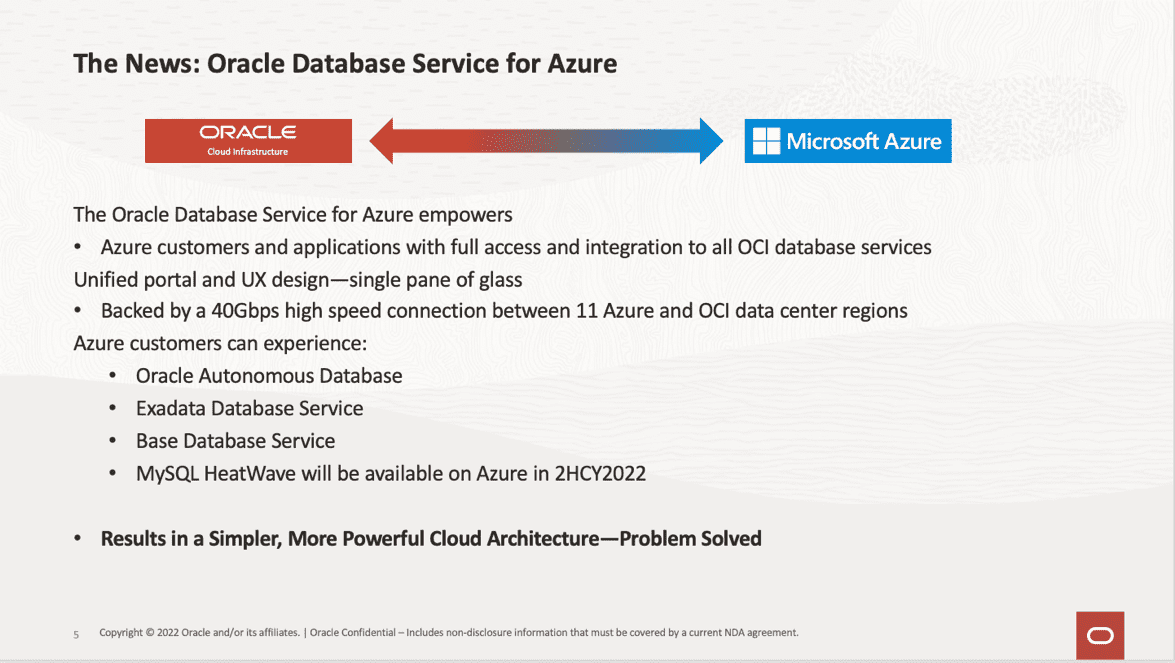
But in a larger sense, the companies also set the stage for a new wave of multi-cloud-driven value by framing this partnership in the context of challenges customers have faced in trying to get different clouds to work together in support of customer goals. Take a look at the very first slide from the presentation announcing the Oracle Database Service for Azure — unlike most such disclosures, it does not jump immediately into product details but instead frames the issue in terms of what customers want, need, and demand.
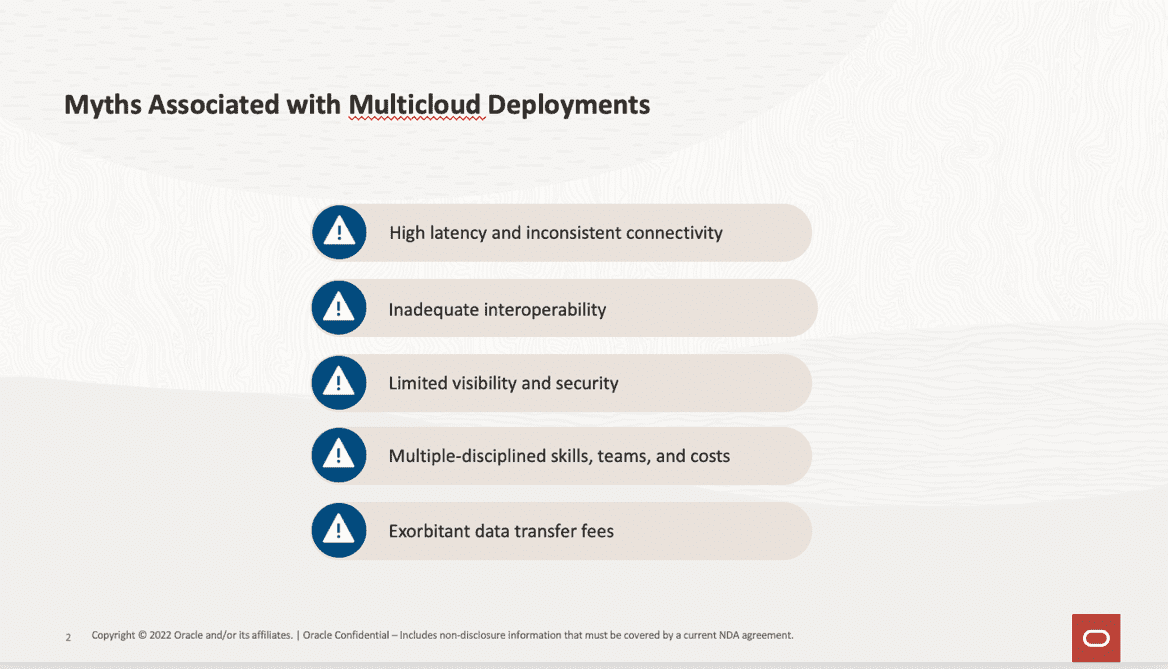
The discussion moved quickly from those “myths” to benefits for customers. But I’d also suggest that what Oracle calls “myths” are in fact very real challenges and frustrations customers have experienced with multi-cloud deployments. While Oracle is, I think, trying to say that those real-world problems are solved with this new solution and are therefore transformed into “mythical” problems, the company should be more clear on how it represents what its customers are confronting every day.
But that quibble aside, here are the benefits Oracle is promising to customers:
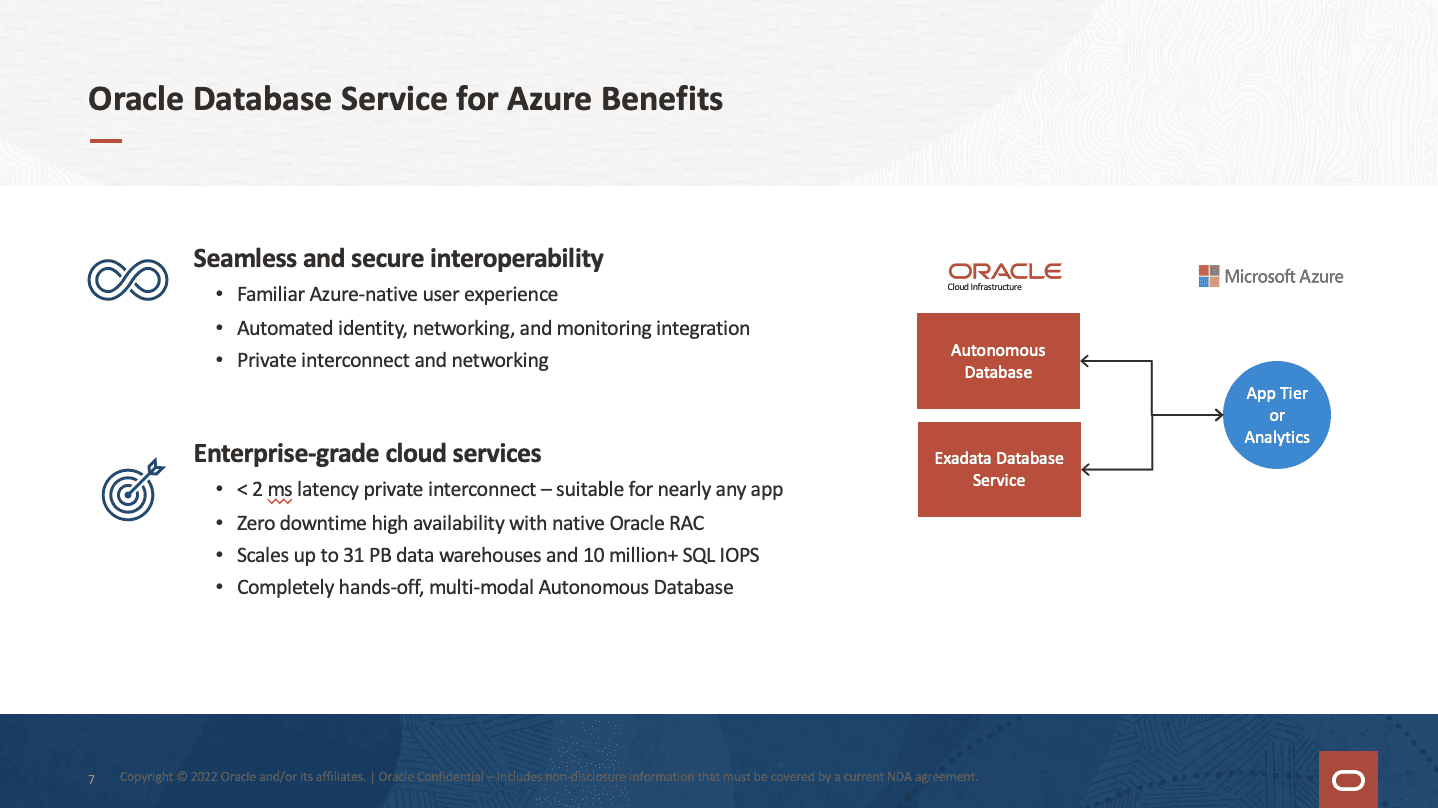
In the presentation, Oracle said hundreds of customers are up and running on the Oracle Database Service for Azure. One of those, the Brazilian telecom company TIM, has experienced a stunning set of benefits from its use of the service:
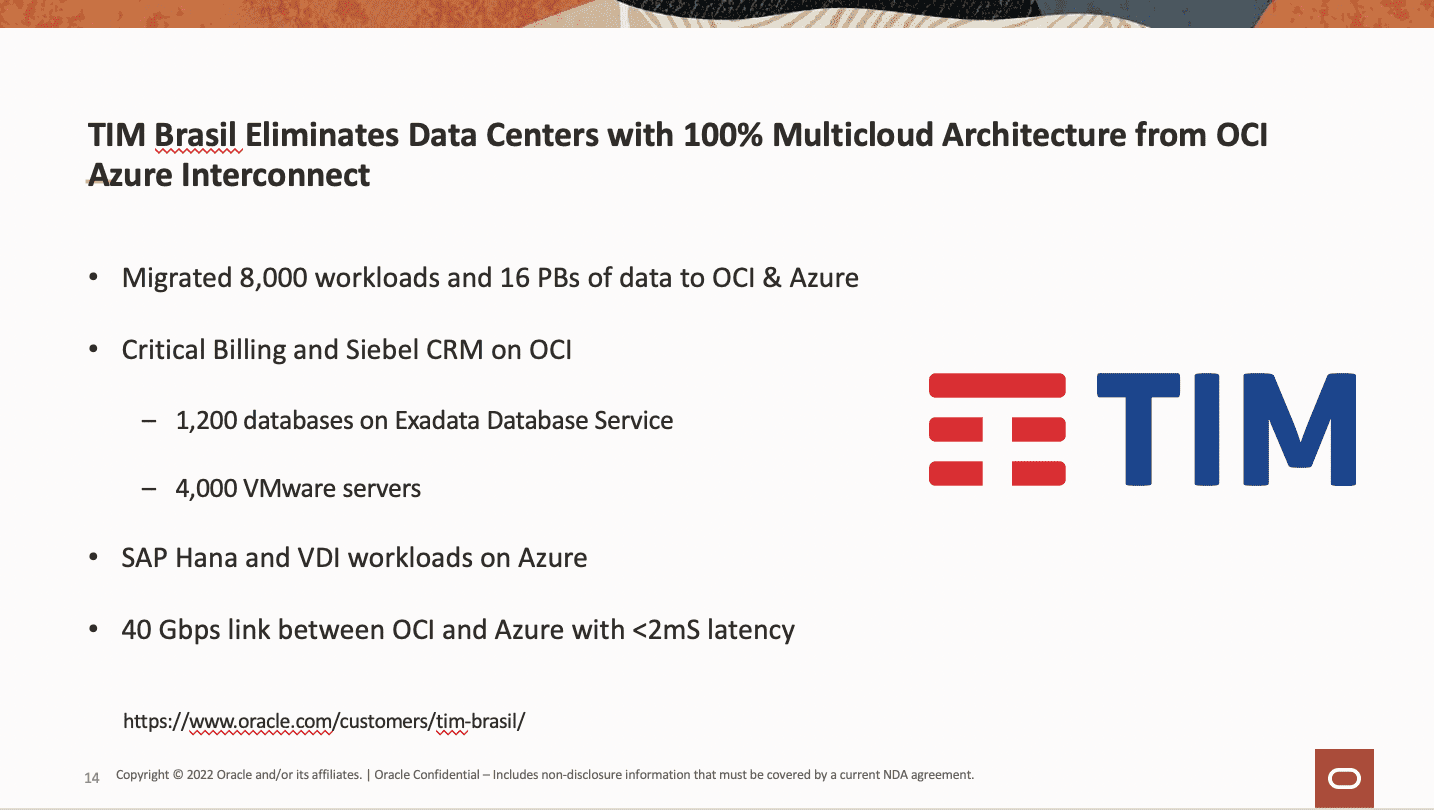
Final Thoughts
With the exception of a relatively small number of specialty cloud-native companies, almost every business will want to operate in a multi-cloud environment — so this is not just a niche-y concern. No, multi-cloud plus hybrid cloud will be the way that businesses deploy enterprise technology for years to come, and I applaud Oracle and Microsoft for not just recognizing that but also aggressively pushing the boundaries of what multi-cloud means so that every cloud vendor will feel the urgency to find ways to overcome competitive realities and simultaneously drive new value for customers.
Because if they don’t, those customers have plenty of alternatives and will surely take their business to cloud vendors that recognize the primacy of the customer over the competitive battles that fire the Cloud Wars.
Want to gain more insights from Bob Evans and view cloud-focused content from Cloud Wars Expo? On-demand video from the event is rolling out now, with more than 40 hours of cloud education content — featuring 100-plus speakers — to be made available in the coming days. All content is free to Acceleration Economy subscribers with an on-demand pass.


